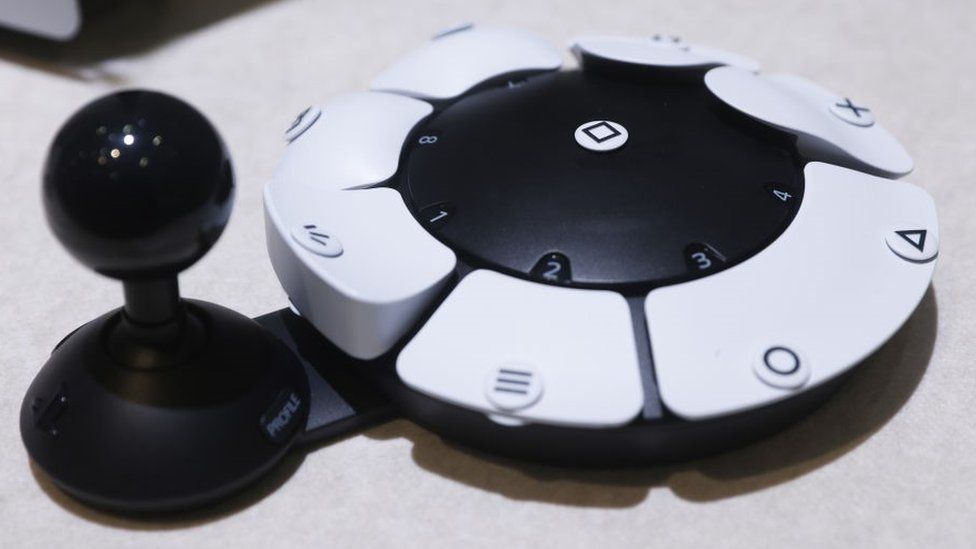ARTICLE AD BOX
 Image source, Getty Images
Image source, Getty Images
By Tom Gerken
Technology reporter
Sony has teamed up with accessibility experts to release a PlayStation 5 controller for disabled gamers.
The Access Controller is a "highly customisable kit" of different buttons, triggers and sticks that lets players create a set-up that suits their needs.
Microsoft's Adaptive Controller, which can be used on Xbox and PC, has been on the market since 2018.
But this is the first device of its type to be specifically designed by Sony for the PS5.
"The idea is that you unbox it and you can start using it right away as a PlayStation controller," Alvin Daniel, Senior Technical Program Manager at Sony Interactive Entertainment, told the BBC.
"To the extent that this works for you and is comfortable for you, there is no need for you to purchase additional third party accessories and buttons and wire it all together.
"We wanted an all-inclusive kit in a box."
But designing accessibility products is a massive task, as every disabled person's impairment is unique to them, and gaming technology is always evolving.
Sony's plan to tackle this problem is through customisation - making it possible for each person to tailor the solution to their own individual requirements.
Image source, Getty Images
Image caption,Alvin Daniel is one of the controller's designers
Mr Daniel said the firm had teamed up with accessibility experts AbleGamers in the US to find ways round that problem.
"When they came up with their own bespoke solutions for various players, they would inevitably try to address three issues - the thumbsticks, pressing buttons, or having to hold the controller.
"If you have challenges in those three areas, this controller will help regardless of your underlying condition."
How it plays
By Paul Carter, Technology reporter
All aspects of the Access Controller have clearly been designed with the input of the disabled community.
Even the packaging is accessible, and the setup process, while clunky at times, lets people adapt the controller to their own specific requirements, and even create different profiles for different games or situations.
As a disabled gamer myself, I waited years for button remapping to become the norm so I was able to play games that rely heavily on the trigger buttons usually placed at the back of a traditional controller, and be able to map them to a more accessible button.
But this was always a workaround rather than a solution. This controller makes that a more accessible reality.
There are however one or two design decisions that are, at best, bewildering - for example, it doesn't feature a right stick that is standard on all modern controllers and fairly essential to many genres of game.
I tried to play Spider-Man 2 - which has a Deaf character - and it was practically unplayable. The only solutions are to use the Access Controller alongside a regular PS5 controller, which is an unwieldy set-up, or use two Access Controllers together - which becomes an expensive solution.
That said, this product, and others like it, are a positive step forward for disabled gamers. That it exists, and that it has been co-designed with and for disabled people shows that gaming accessibility is now a mainstream issue.
I hope that this is the start of an evolution of these types of products, and that manufacturers listen to feedback and continue to iterate and innovate.
The gaming industry has been under pressure to make improvements for disabled players.
In the last few years, racing sim Forza Horizon 5 introduced a sign language feature, the Last of Us Part II has a mode for blind and deaf players, and Just Dance has a routine suitable for players in wheelchairs.
But the hardware options have been slim for those with disabilities, and Mr Daniel said Sony's new controller was about addressing that.
"I think particularly if you're a young person today, gaming is such a big part of popular culture, that you are socially isolated or you're left behind if you can't participate in the same experiences your friends or your schoolmates are doing", he said.
"We have seen that we bring joy to players who couldn't play before."

 1 year ago
44
1 year ago
44








 English (US) ·
English (US) ·